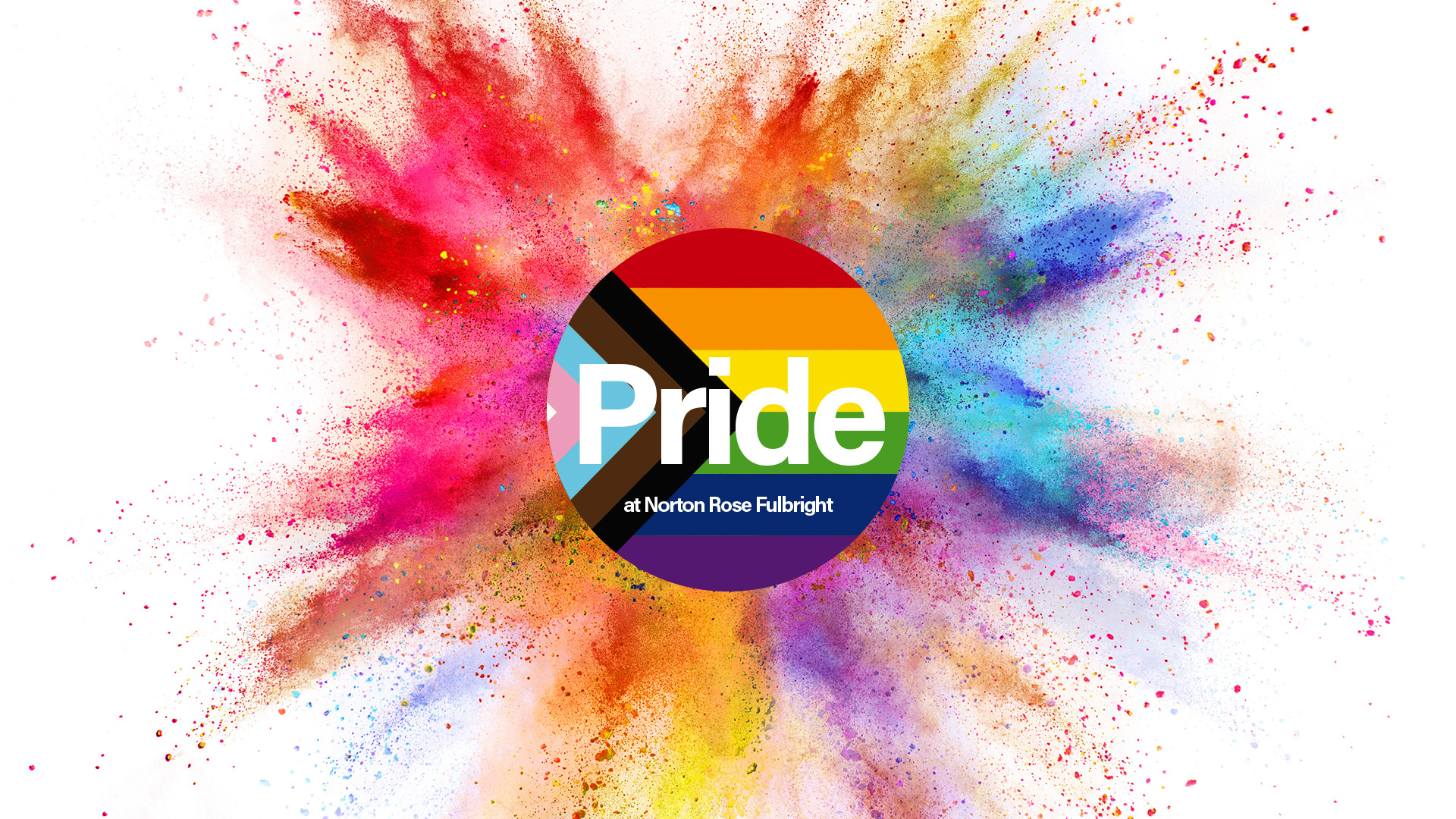In the next of our series of interviews for Pride month, Preston talks about the importance of visible and vocal support for the LGBTQIA+ community.
Preston joined Norton Rose Fulbright in Calgary as an articling student – the equivalent of a trainee – in 2019, having moved from the U.S. with his now husband. Law is Preston’s second career – he previously worked in the non-profit sector – and his decision about which firm to join was a carefully considered one.
“I was out when I started interviewing with firms in Canada – but it’s an ongoing process, coming out. Every time you meet a new person you have to come out again. Every new environment is a process of determining who you are safe with and who might bristle at hearing that you are partnered with someone of the same gender.
“When we were working in the U.S., my husband was always very honest when talking to colleagues about our relationship, but I was more guarded. I worried about the reaction of corporate America.
“So when it came to starting my legal career in Calgary, I wanted to find somewhere I could feel comfortable being myself. In meeting with firms, I’d try to gauge the culture and look for subtle clues. By necessity you learn to do this when you’re queer to protect yourself.”
Preston was introduced to NRF by a friend and quickly felt comfortable. “Everyone I met was lovely – and I knew I’d eventually feel safe being out at work at NRF. It definitely took a while, but I’m slowly starting to feel more comfortable being open about the fact that I’m queer with my co-workers and the partnership. Obviously, inclusion is a journey, not a destination, but I think Norton Rose Fulbright is on its way and headed in the right direction.”
The partners at the Pride Parade
Not long after joining, Preston took part in NRF’s Pride celebrations. “We were the first law firm in Calgary to participate in the Pride Parade and I remember being excited to see partners and senior associates in attendance. It made a huge difference to have that support from senior colleagues. It’s made a huge difference in me feeling more at ease about being openly out at work – although I did think I was the only member of the queer community at NRF Calgary for a while.”
Preston recently joined NRF’s Pride committee and is looking forward to being able to hold in-person events again. “Holding virtual events during lockdown was great, but it’s not the same. For minority groups, visibility and being able to see yourself reflected in leadership is so important. Troy Ungerman, for example, has been a name I’ve known from my first few weeks on the job, even though he’s in Toronto. He is very visible at NRF Canada and has shared his story through various videos and publications. It makes a huge difference seeing yourself reflected in leadership.”
One of the crucial factors in creating a feeling of belonging, Preston says, is senior leadership making an effort to be seen supporting the LGBTQIA+ community.
“Quite often, minority groups will spend hours organising events but only their own community shows up – you feel a bit like no one else cares. But seeing senior leaders show support is an important signal to feeling supported. Growing up, I always felt that in corporate culture it was a case of ‘don’t be out until you know it’s safe’ – but we need to work to flip that on its head. People should be able to assume they’re safe unless proven otherwise.”
Preston’s advice to junior colleagues about coming out at work is “to find people you can trust and build relationships from there. Across the firm as a whole, so much support is available, so if you don’t know who the allies are in your office, reach out to the local, national, or global Pride network to get a start.”




